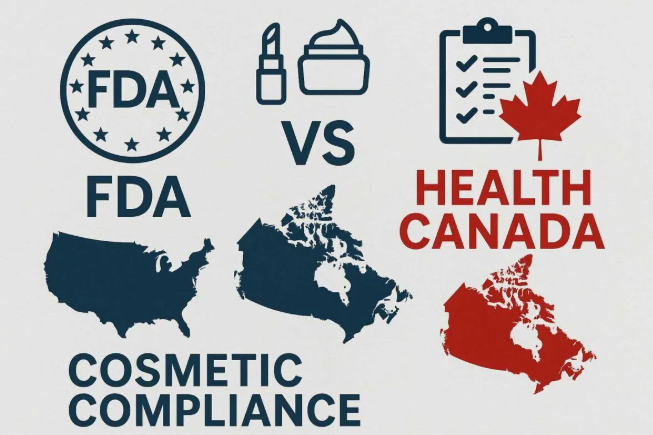FDA equivalent Canada: who regulates drugs and medical devices?

If you do business in both the United States and Canada, one of the first questions you may ask is: What is the FDA equivalent in Canada? In the U.S., the Food and Drug Administration (FDA) regulates drugs, medical devices, foods, and more. In Canada, the equivalent authority is Health Canada, a federal department responsible for ensuring the safety, effectiveness, and quality of products that affect the health of Canadians.
Understanding how Health Canada works compared to the FDA is critical if you want to bring pharmaceuticals, natural health products, medical devices, or foods into the Canadian market. In this blog, we’ll break down what “FDA equivalent Canada” means, highlight the main differences, and explain how Quality Smart Solutions can help you stay compliant.
What is the FDA equivalent in Canada?
The FDA’s counterpart in Canada is Health Canada, specifically its regulatory branches:
-
Therapeutic Products Directorate (TPD): Oversees prescription and non-prescription drugs.
-
Biologics and Genetic Therapies Directorate (BGTD): Regulates biologics such as vaccines and blood products.
-
Natural and Non-prescription Health Products Directorate (NNHPD): Handles vitamins, supplements, and natural health products (NHPs).
-
Medical Devices Directorate (MDD): Reviews and licenses medical devices.
-
Food Directorate: Ensures food safety and nutrition standards.
Together, these directorates make Health Canada the closest equivalent to the FDA. While the core goal—protecting public health—is the same, the regulatory frameworks differ in important ways.
FDA vs. Health Canada: key differences
While both agencies regulate drugs, devices, and food, businesses must understand some key differences:
-
Drug approvals: The FDA issues a New Drug Application (NDA), while Health Canada requires a New Drug Submission (NDS). Both involve safety, efficacy, and quality data, but timelines and requirements vary.
-
Medical devices: In the U.S., devices need FDA clearance or approval (510(k) or PMA). In Canada, devices must be licensed and companies must hold a Medical Device Establishment Licence (MDEL).
-
Food regulation: The FDA and USDA share food oversight in the U.S., while Health Canada and the Canadian Food Inspection Agency (CFIA) handle food safety in Canada.
-
Natural health products: In the U.S., supplements are regulated as food. In Canada, natural health products require a product license and NPN (Natural Product Number) from Health Canada.
Understanding these differences can save your business time, money, and compliance headaches.
Why compliance with Health Canada matters
Bringing products into Canada without aligning with Health Canada requirements can cause:
-
Costly delays due to rejected submissions or recalls
-
Market entry barriers if licenses are missing
-
Legal penalties for non-compliance
-
Loss of trust with retailers and consumers
On the other hand, working with compliance experts ensures a smooth approval process and helps you build credibility in the Canadian market.
Navigating Canadian regulations step by step
If you’re expanding from the U.S. to Canada, here are some steps to consider:
-
Identify your product category (drug, medical device, food, or natural health product).
-
Determine the correct license or submission type (e.g., NDS, DIN, MDL, MDEL, or NPN).
-
Prepare scientific data to support safety and effectiveness.
-
Develop compliant labels that meet Canadian bilingual (English and French) requirements.
-
Submit to Health Canada for review and approval.
-
Maintain compliance with post-market monitoring, reporting, and renewals.
How Quality Smart Solutions can help
At Quality Smart Solutions, we specialize in helping businesses bridge the regulatory gap between the U.S. FDA and Health Canada. Our team can:
-
Assess your product and determine the correct regulatory pathway
-
Prepare and submit dossiers to Health Canada
-
Secure DINs, NPNs, MDLs, or MDELs as required
-
Design fully compliant bilingual labels
-
Provide ongoing compliance support for audits and renewals
With our expertise, you’ll avoid costly mistakes, speed up approvals, and ensure your products launch successfully in Canada.
Frequently asked questions about FDA equivalent Canada
Is Health Canada the same as the FDA?
Not exactly. Health Canada is the FDA’s Canadian counterpart, but each has unique regulatory frameworks.
Do I need FDA approval to sell in Canada?
No. FDA approval is not recognized in Canada. You must go through Health Canada’s approval process.
Which is stricter: FDA or Health Canada?
Both are rigorous, but Health Canada often places stronger emphasis on bilingual labeling and natural health product regulation.
Conclusion
When businesses ask about the FDA equivalent Canada, the answer is clear: Health Canada. While the goals of protecting consumer safety are the same, the regulatory processes differ. To succeed in the Canadian market, you need expert guidance on licensing, submissions, and compliance.
At Quality Smart Solutions, we make the process straightforward. From drug submissions to medical device licensing, our experts help you achieve compliance quickly and confidently. Contact us today and take the first step toward launching your product in Canada.
- AI
- Vitamins
- Health
- Admin/office jobs
- News
- Art
- Causes
- Crafts
- Dance
- Drinks
- Film
- Fitness
- Food
- Giochi
- Gardening
- Health
- Home
- Literature
- Music
- Networking
- Altre informazioni
- Party
- Religion
- Shopping
- Sports
- Theater
- Wellness


